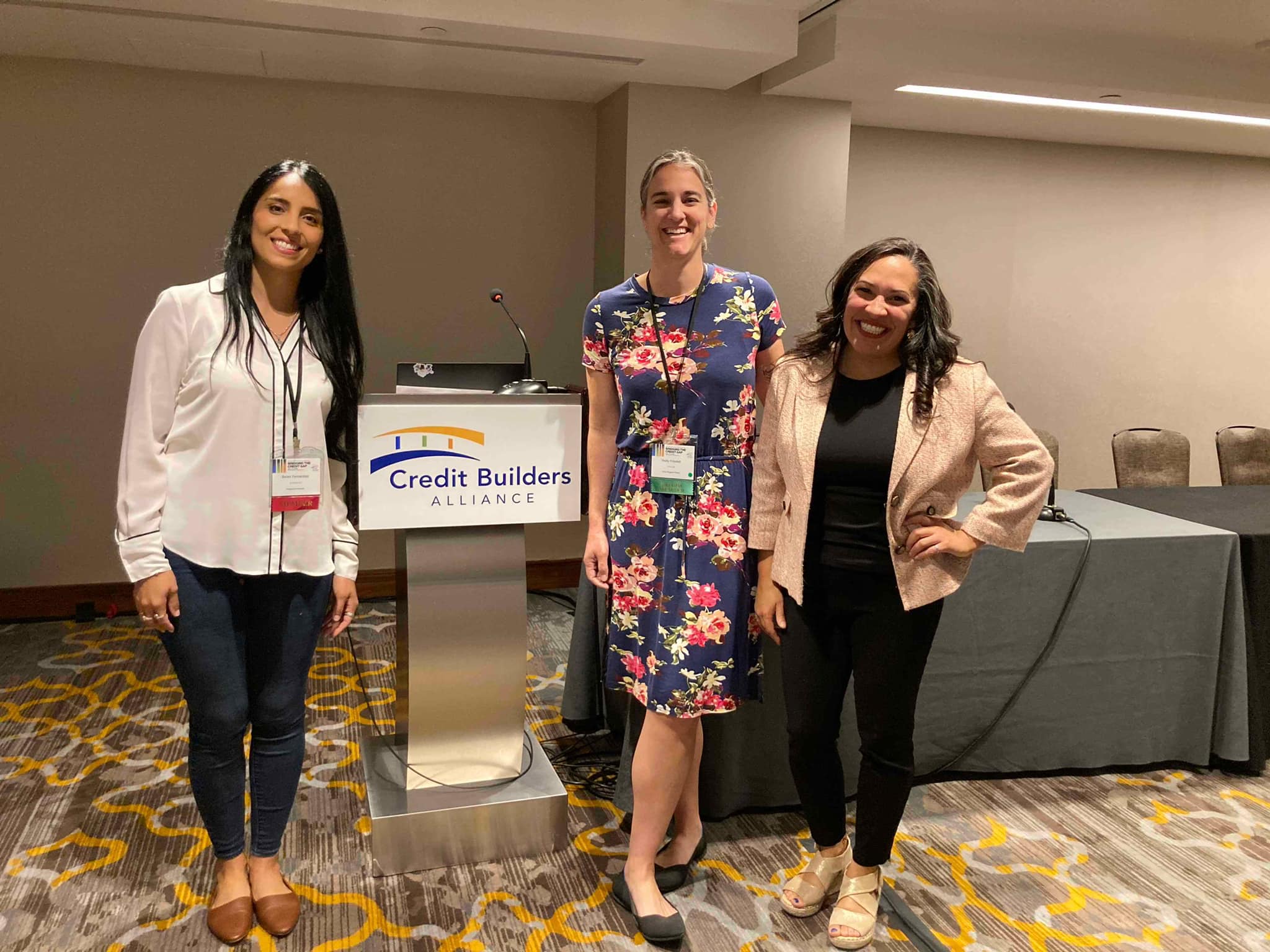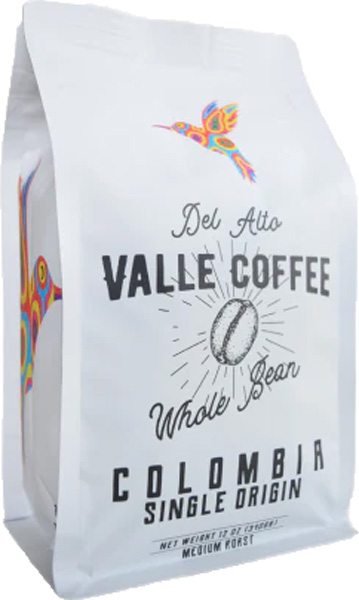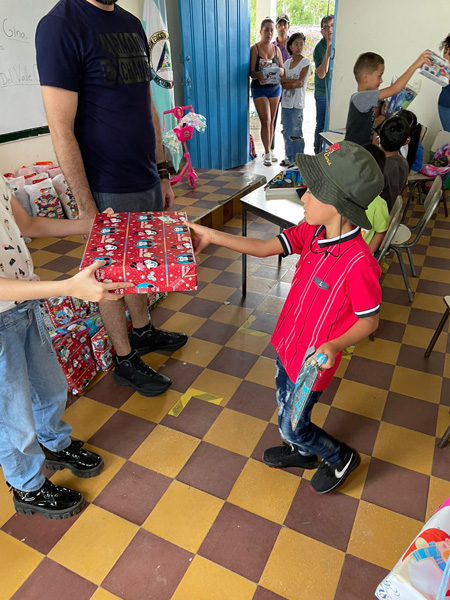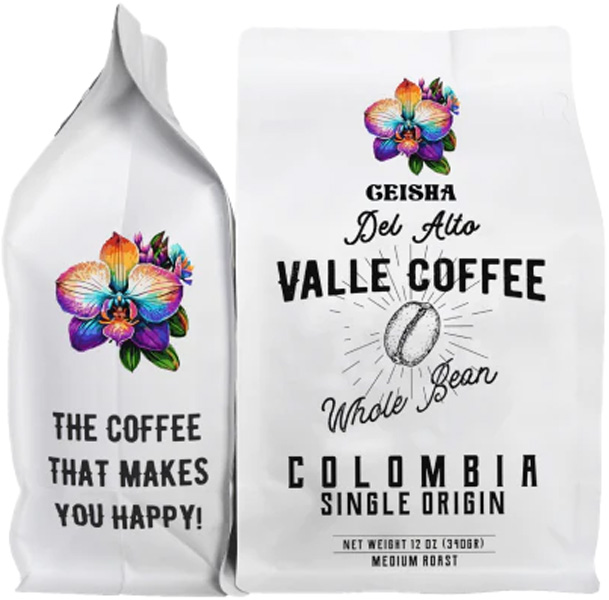- Published in Lead Up
Outstanding Women: Sophia Dheming


Para leer en español, presión aquí: Empoderar: La misión de Lindsey Navarro
By Axel "Lola" Rosa
Lindsey Navarro is the founder and Executive Director of El Centro Inc., a 501(c)(3)nonprofit organization providing financial literacy and entrepreneurial training in Spanish to the Latino/Hispanic community in south Louisiana. Many know her for her bright smile, vibrant personality, work ethic, ambition, and, most importantly, because she’s probably the only person who honestly and wholeheartedly helped a favorite Latino/Hispanic business, such as a coffee shop or taco spot file the necessary paperwork to be able to operate. So what drives this Mardi Gras-loving, Panamanian descent, Houma, LA-born and raised, entrepreneurial-driven woman to do her work?

Her mother, Gloria Navarro, was a commercial banker for nearly four decades and the first female Market President at b1Bank. Her late father, Juan Navarro, was a mechanical engineer and entrepreneur designing and implementing sugar mill factory equipment and specializing in providing consulting services for the sugar cane and beet industry. As a child, she had the opportunity to spend all her summers with her grandparents in Panama, where they owned a distribution center. “I would wake up in the morning and help my grandmother check in all her customers. They would drop off all the merchandise in the mornings, and we would return to the office and count money from 8 o’clock (PM) to midnight.” Navarro cherished these moments and recognized her family’s entrepreneurial spirit. “My grandfather’s brothers all had businesses as well, and some were bankers, so I grew up in an environment where being an entrepreneur was a thing.”
Navarro holds a bachelor’s degree in criminal justice from St. Peter’s University. Initially, her goal after earning her bachelor’s was to attend law school. She lost interest in that path, even with accomplished opportunities such as working at a law firm and the District Attorney’s office and interviewing for an internship with the Secret Service and Federal Bureau of Investigation. “I knew I wanted to continue my education, so I had to do some sort of a Master’s (Degree) in something.” She had a boyfriend in college who was studying international business, and she used to review all his papers. She jokes, “He used to say, ‘You know you should study marketing. You’re really good at this.’ I was like, ‘Ahhhhh, no thanks!’ I was stubborn about getting my degree and didn’t want to be one of those kids who switched majors.”
Little did she know she would later get an MBA from Loyola University New Orleans and start her own business almost a decade later.
After earning her MBA, Navarro began working for LiftFund, a non-profit Community Development Financial Institution (CDFI) and Community Development Corporation (CDC) that supports small business owners through small business loans and technical support. During her seven years with LiftFund, Navarro was instrumental in deploying more than $1.2 million in microloans to Latino/Hispanic entrepreneurs across Louisiana, Arkansas, Alabama, and Tennessee.
“I had traveled a lot of the U.S. and saw in 2015 that the organizations providing financial literacy didn’t have language accessible services even in metropolitan areas where the Latino/Hispanic population was larger.” She began her work at home and opened El Centro in March 2018. The first program launched in August through a microgrant from the Mexican Consulate of New Orleans, where El Centro provided services through their financial literacy window (Ventanilla de Educación Financiera) with monthly workshops and one-on-one coaching to customers coming through the Mexican Consulate.

Since launching, El Centro has served more than 6,000 Spanish-speaking individuals via seminars and consultations and has reached more than 190,000 virtually. In 2021, El Centro, operating with just one volunteer, facilitated the deployment of $174,000 in microgrants to ITIN (Income Taxpayer Identification Number) holders and helped customers gain access to more than $250,000 in PPP (Paycheck Protection Program) and EIDL (Economic Injury Disaster) loans.
Ana Gonzalez, owner of La Vaquerita (The Cowgirl), a Mexican clothing store in Gretna, remembers the difficulties of starting her business and how people tried to take advantage due to her language barrier. “I lost a lot of money and business because no one spoke Spanish or wanted to help with documentation and processes,” said Gonzalez. She remembers thanking God the first time she heard about El Centro at the Algiers Flea Market. “A young lady passed out flyers and said, ‘We help you with your business. If you’re opening your business, we can help you and we speak Spanish.” Gonzalez made an appointment with Navarro. Thanks to Navarro and her organization’s efforts, Gonzalez secured a retail space for her clothing store soon after. “Lindsey personally took care of me. She took me by the hand, went with me, and spoke to the landlord about securing this location for me.” Beyond that, Navarro recommended that Gonzalez take computer courses offered at the Hispanic Chamber of Commerce. “I learned more about my business and using a computer. Now I’m not afraid of the computer,” chuckled Gonzalez.

Aside from contributing to the economic development of Louisiana and providing free programming to the Latino community, Navarro loves to “Let the Good Times Roll!”. She is one of the co-founders and holds a legacy position at the Krewe of Themis, an all-women’s krewe that believes in social justice and community service. “I love it; we are a mixed crew. Very, very diverse. We have a great time parading!” Navarro wanted to be a part of a krewe for a good time and to relay a message to young Latinas. Themis’s signature throw is a hand-decorated umbrella. “Last year, all my umbrellas were themed ‘Poderosas (Powerful Women)’ like an homage to our Latinidad (Latina Identity).” Holding back tears, she adds, “Who doesn’t dream of being at a parade, Uptown? I imagine myself as a little girl reaching for a special throw and catching an umbrella from a woman who looks like me and hands a powerful message around Latinidad. That was a great opportunity to say, ‘Share your heritage and be proud of who you are because WE ARE PODEROSAS’”.
Navarro’s work won’t slow down anytime soon. As the Latino/Hispanic Spanish-speaking community grows, so does El Centro. According to the U.S. Census Bureau, there were 62.1 million Hispanics in the U.S. in 2020; in 2060, the population will reach 111 million. By then, roughly 1 in 4 Americans will be Hispanic. Navarro highlighted this paragraph from the book Uncolonized Latina by Valeria Aloe, MBA: “We (Latinas) open businesses at the highest rate across all population groups. We are the engine of the American economy, contributing a massive $2.6 trillion to the US GDP. This figure is so significant that if we were our own country, we would be the eighth largest economy in the world.”

Navarro is working to serve these entrepreneurs. Last month, El Centro received a three-year grant of $450,000 to provide language-accessible wealth-building programs for 400 Latino residents of New Orleans as part of the Economic Mobility in Motion project. They continue to receive significant grants from organizations that believe in the impact of the various programs provided by El Centro.
Navarro’s upbringing, education, and personal experiences throughout her life have contributed to her strong business mindset and success. Her ambition to identify and find solutions to problems and create change is unmatched! Like most like-minded entrepreneurs who find their calling or knack, Navarro’s calling is to change how Latinos gain financial access.
When she’s not decorating umbrellas or sailing on her boat, you can find her fighting for change within her community with a big smile while encouraging a network of Latino business owners to take the next step in their careers or businesses. One thing is sure: Navarro is a proud Latina living in the U.S. “I love our heritage, I love our culture.” With a hand in the air, she says, “I am a Latina. Loud and Proud!”
Para leer este artículo en español, clic >>Del Alto Valle, Café con Propósito
It is uncommon to meet an entrepreneur with Paola Barona’s passion. Her dedication to her product, Del Alto Valle Coffee, clearly goes beyond creating a successful company. Barona has a full-time corporate job and dedicates her free afternoons and weekends to importing, promoting, selling, and distributing fresh Colombian coffee roasted by herself in New Orleans.

On a trip to a farm in the central mountain range of the Andes, in the town of Ulloa, Colombia, Barona became interested in the process it takes behind enjoying an excellent cup of coffee. Thousands of families in Colombia depend on coffee farms. Hundreds of families on one farm depend on Del Alto Valle Coffee to continue working and surviving.
That is where Barona’s motivation comes in. She created Del Alto Valle Coffee and seeks to position it well in the American market to care for the farmers. Their beans come from a single farm and make a gourmet and artisanal coffee packaged in 4 presentations: Original, MadreMonte, Pink Bourbon, and Geisha. When you try any of these varieties, each cup of coffee results in a sensory journey that emanates the richness and diversity of the best coffee in the world.

The Del Alto Valle Coffee brand was created due to the economic difficulties that the pandemic generated for farmers. “I was on the farm, and I saw how the farmers of Colombia’s most important product did not receive any help. I thought they deserved better treatment and thought of a way to help them,” says Barona. Her small production has received a great reception from supermarkets in the New Orleans metropolitan area and online consumers. From conscious planting and production to carefully designing its packaging, Barona protects the quality of her coffee.
Believing in that quality, she decided to participate in the first NOLA Coffee Festival, an event in which large commercial brands and recognized artisan brands from different parts of the world with years of experience in the industry gathered to showcase their coffee.
Del Alto Valle Coffee, a new brand unknown to many, with a team of one person, was crowned champion of the competition, receiving the most coveted title, Best Brewed Coffee. “I didn’t even understand when they said my name. The person beside me told me I had won the prize, and I couldn’t believe it,” said Barona. Del Alto Valle Coffee’s Geisha variety, represented by an orchid on its packaging, was the champion among around 40 competitors with decades of experience.
The Geisha variety is Del Alto Valle Coffee’s most precious and limited edition. “It is a difficult grain to obtain,” explains Barona. Geisha coffee is renowned for its distinct and complex flavor profile. It often exhibits floral and tea-like aromatics and other delicate floral elements. Its vibrant acidity, nuanced sweetness, and clean, silky body characterize the taste. Tasting notes might include hints of tropical fruits, stone fruits, and citrus. Geisha coffee is known for its rarity and limited availability. The trees are less productive than other coffee varieties, and the meticulous care required during cultivation, harvesting, and processing further restricts the quantity of Geisha coffee produced. The altitude of the land where it grows provides optimal conditions for Del Alto Valle Coffee’s geisha bean, and caring for it is the task of the families who cultivate it.

That’s why, beyond demonstrating the excellent quality of Del Alto Valle Coffee, the brand exists with the mission of supporting the education of the children of the families of the coffee farmers. Barona seeks to make the company self-sustainable but dedicates all profits to funding educational projects for children in the Ulloa region. By purchasing any variety of Del Alto Valle Coffee, you are enjoying a great cup of coffee and allowing 150 families from three towns to receive school supplies and Christmas gifts and have a better quality of life.
Supporting the families is the reason that moves Barona to create the best coffee: highlight the work of the families who take care of each bean and reward them for their hard work, ensuring they can have a decent, fair source of employment.
If you want to impress someone with good taste this Christmas or surprise your friends and family on any occasion, gift the best Colombian Coffee roasted in New Orleans. You can find Del Alto Valle Coffee at your favorite supermarket or order online at delvallecoffee.com.
Para leer este artículo en español, presiona >>>¿Estamos listos para las nuevas tendencias de la...

Para leer este artículo en español clic…

By Valeria Ali, The Idea Village The U.S…

Para español click: Valuación o avalúo vs. inspección By…

En español >> Cómo vender tu casa…
Para artículo en español clic aquí: Comida Peruana en Nueva Orleans: Tito's Ceviche & Pisco By AnaMaria...
The País Grape, Our Heritage in America. By Rebeca M. Pinhas, CSW, CSWS Instagram @vinomomnola Click...
Pacos Tacos: The New Kids on the Block By Cristy Cali Instagram @drcristycali Click aqui...
Summer Sippin' in new Orleans Bartenders share cocktail recipes to make at home Bars have been one...
Quality: Cheap vs. Expensive Wines By Rebeca M. Pinhas, CSW, CSWS @vinomomnola Click aqui para español-...
The story behind the food we eat on Easter SundayBy Marcella Escarfuller @bubblegumcatering Click aqui para...
Mezcal By Marcella Escarfuller @bubblegumcatering Click aqui para español- >Mezcal Tequila is inarguably one of the most popular spirits...
Chocolate By Marcella Escarfuller Click aqui para español- >Chocolate One thing comes to mind when I think of...
King Cake By Marcella Escarfuller Click aqui para español- > King Cake The King Cake, named for the three...
New Orleans Premier Multicultural Magazine
